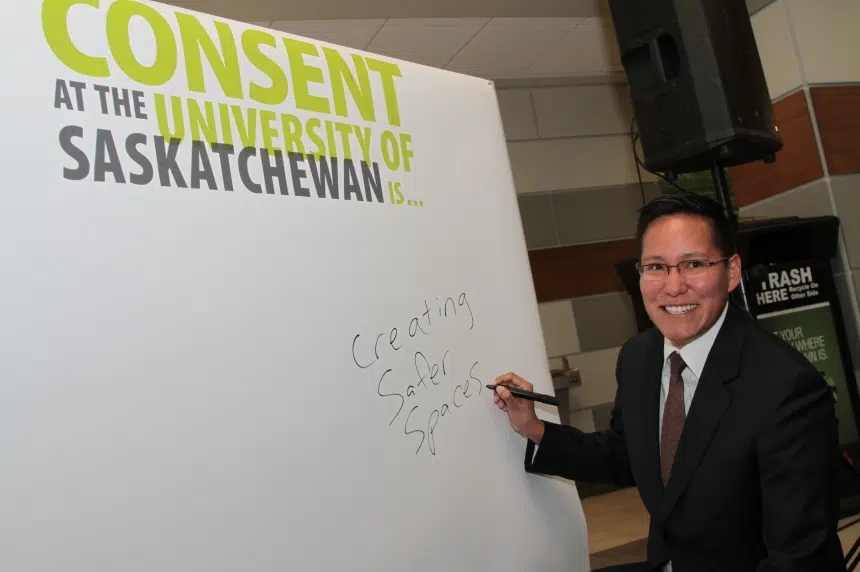A day after a former University of Saskatchewan student was assaulted near campus, the university has unveiled its new sexual assault policy.
The draft policy was opened to public feedback as part of the school’s annual Sexual Assault Awareness week.
“As a campus community, we have some power to set our own norms, so what are we willing to accept from each other in terms of behavious?” vice-provost of teaching and learning Patti McDougall said.
“I think the second part is what are we willing to do as a campus community in response to these sorts of behaviours?”
The short document lays out in broad terms what happens after someone reports a case of sexual assault, what services are available to them, the responsibilities of the university community, confidentiality rules and consequences for perpetrators.
Before, sexual assault was listed under the umbrella policy of non-academic misconduct regulations.
“By making it a stand alone policy, it does heighten people’s awareness about what can go on and if something does happen, people will know what they can do,” McDougall said.
On Monday morning, a former student reported being touched by a man in a sexual manner while she walked on the Meewasin Trail near Diefenbaker Centre. Her report brings the total number of incidents at the university to 12 in six years, but McDougall believes that number is actually higher because not all victims report their assault.
“Nationally… for university campus, sexual assaults are most likely to take place in the first year of study and more likely inside the first eight weeks,” McDougall said.
Students were notified within one hour of the most recent reporting. The new policy details when the university will keep all information confidential and when information needs to be released to the general public for the safety of others.
Creating a safer campus was one of student union president Jack Saddleback’s main platform points during his campaign last spring.
“As a survivor of sexual assault, I look forward to having this policy state that our university is committed to creating safer spaces,” he said.
Saddleback said he has slowly witnessed the university culture begin to change to one based on sexual consent, but the challenge now is getting word of the new policy out to students.
The university will collect feedback on the policy over the next two weeks and present a final draft for approval from the board of governors in December.











